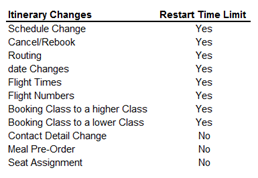Virgin Atlantic Global Booking Policy
All bookings on Virgin Atlantic Airways travel documents must comply with Virgin Atlantic’s Conditions of Carriage, and with all applicable fare rules. Virgin Atlantic Booking Policy provides clear expectations for subscribers concerning the use of reserving, booking and ticketing Virgin Atlantic air transportation. It is important that all tariff rules are adhered to as they are designed to allow flexibility for all customers.
We will continue to provide information to our Agency Partners to ensure that all users take a consistent approach when using services to reserve space and issue tickets for Virgin Atlantic customers. Booking practices that are considered a violation of Virgin’s policies will be subject to ADM and/or restrictions in booking Virgin Atlantic.
To prevent such violations, the below links/table details Virgin Atlantic’s booking rules and abusive ticketing practices. Under no circumstances should Virgin personnel or Virgin-appointed travel agents suggest or solicit any type of abusive ticketing practice that would violate Virgin Atlantic’s tariff rules. For all bookings made including our JV Delta flights, their Booking Policy can be found on Delta Pro here. Applicable ADM fees for violations can be found here.
All agents with Virgin Atlantic Ticketing Authority, must adhere to the Global Ticketing Policy.
This policy is designed to ensure fair booking practices, protect inventory integrity, and support compliance with applicable consumer protection and competition laws. It is not intended to restrict competition between distribution channels or to unduly limit consumer choice.
Unless specified all clauses apply to New Distribution Capability (NDC).



